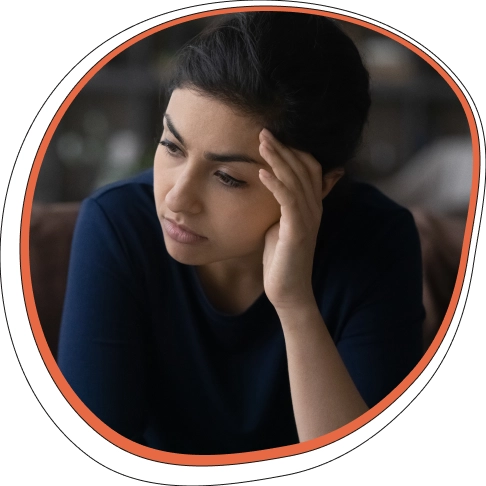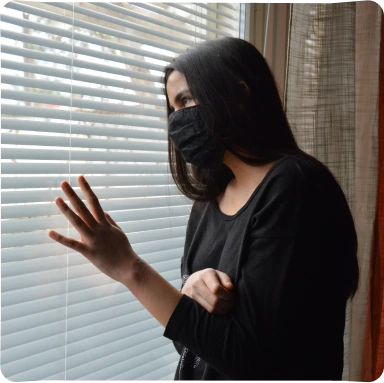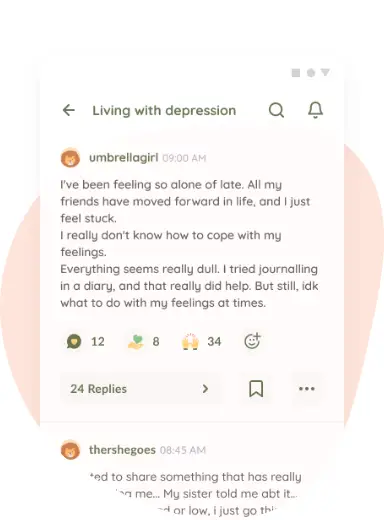We understand what it is like to go through Social Anxiety – and we’re here to help you.


Take our Depression test and get an instant report to understand your symptoms.
Facing the challenges of social anxiety is never easy. It can leave you feeling paralyzed, unsafe and ashamed.
Get help from professionals who understand social anxiety disorder inside & out.
Understand the mental, physical & emotional roots of your social anxiety with your psychiatrist. Work with them to create a treatment plan, which might include medication support.
Get recommendations for self-care tools that you can use between sessions to cope with nervousness, intrusive thoughts and fear about upcoming interactions.
Reach out to others that are going through similar challenges as you. Share your experiences and learn from others in our anonymous anxiety community.
Your recovery from social anxiety is our biggest priority. We’ll be right at your side, at every step.

We know how hard it is to watch someone you care about struggling. Finding the right care is the first step. If you want guidance on the best mental health support for yourself or a loved one an Amaha Care Consultant can help you.

Social anxiety is a chronic mental health condition in which an individual might feel a lot of anxiety when in a social situation. There is an intense fear of negative judgment from others and this causes a lot of distress and anxiety.
Shyness is a feeling of awkwardness or worry that occurs during social situations. Almost everyone feels shy every now and then, and it is a completely normal feeling to have.
On the other hand, Social Anxiety Disorder (SAD) is a severe fear of situations involving interaction with others or any kind of social situation, particularly when there is a possibility of being judged by strangers. Exposure to social situations can immediately provoke an anxiety response, leading to avoidance of the situation. This further causes various emotional and behavioural problems such as loss of self-confidence, depression, and substance abuse. Thus, shyness and social anxiety are not the same.
Social Anxiety can interfere with a person’s ability to function in daily life. It can stop them from becoming involved in relationships, romantic or friendship. Some may avoid eating at a restaurant or using a public restroom, causing them to miss out on joining family members and friends. For some, it prevents them from working. Many people with SAD feel isolated and alone.
The major symptoms of social anxiety disorder include:
There are certain things you can do to manage social anxiety on your own. They include:
Self-care:
Seeking community support:
Therapy can primarily benefit in the following ways:
Psychiatry can benefit in the following ways:
If you’re watching someone struggle & want to help them, our client care team can guide you.